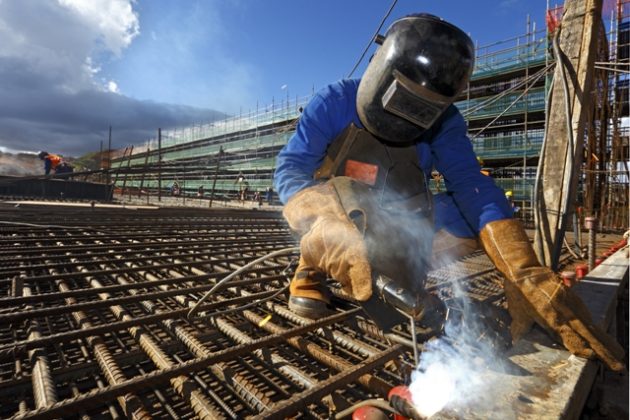
Ottawa is having trouble spending its $14.4B infrastructure fund, says PBO
by Jordan Press, The Canadian Press

The Parliamentary budget officer says only half of the funds made available for infrastructure have been spent so far, and warns that rising interest rates may wipe out any economic benefit by 2022

Parliamentary budget officer Jean-Denis Frechette’s office found 10,052 projects with a combined cost to federal coffers of $7.2 billion have been approved for funding across 32 departments, agencies and Crown corporations since 2016, when the Liberals unveiled the first phase of their infrastructure program.
OTTAWA—Parliament’s spending watchdog says the Liberals are slipping further behind on their infrastructure program, noting in a new report that only half of the $14.4 billion earmarked for the first phase of the infrastructure plan has been set aside for projects.
The report also warns that while there have been some economic gains from spending, those benefits the Liberals once touted for the spending may not be fully realized.
The parliamentary budget office’s report says the slippage in spending is likely to affect the budgetary balance sheet by reducing planned deficits in one year at the expense of deeper spending in future years.
Parliamentary budget officer Jean-Denis Frechette’s office found 10,052 projects with a combined cost to federal coffers of $7.2 billion have been approved for funding across 32 departments, agencies and Crown corporations since 2016, when the Liberals unveiled the first phase of their infrastructure program.
That still leaves $7.2 billion to be allotted for projects that the Liberals had hoped would be underway or done by now.
Infrastructure Minister Amarjeet Sohi said the report was not a complete picture of the government’s spending because officials didn’t provide enough information to Frechette’s office.
The government should have some more information by the weekend: Sohi said the government has set a deadline of Saturday for provinces and territories to identify how they plan to spend phase one money he oversees for water and transit projects.
“Every single cent of that $14 billion is committed to programs and is committed to our communities and we’re going to deliver every cent of that,” Sohi said.
Frechette’s concerns about the pace of federal infrastructure spending have been a thorn in the Liberals’ side for more than a year as his office has repeatedly raised questions about delays. His latest report arrives as the Liberals will miss a self-imposed deadline to sign funding deals by the end of March with all provinces and territories for $33 billion in upcoming spending. Two more agreements are to be signed next week.
Federal coffers are set to dole out $186.7 billion in infrastructure money over the next 12 years, but the most recent federal budget indicated about one-quarter of planned spending between 2016 and 2019 was being moved to future years.
NDP infrastructure critic Brigitte Sansoucy said Frechette’s report confirms the Liberals can’t deliver on their promises. The Bloc Quebecois lamented the disparity in per capita spending that saw Quebec at the bottom of the pack while more money per capita was invested in smaller provinces.
Conservative infrastructure critic Michael Chong said the report reflected a pattern of mismanagement on the infrastructure file, with money not being spent or allocated on time. He said the Liberals promised a solution to this issue during the 2015 election, saying that any uncommitted infrastructure funds would be moved to the gas tax fund that funds work in cities.
“And they’re not doing it,” he said.
“That was their proposal to deal with the problem. They made a half-hearted attempt at it last year and they’re not committing to it this year.”
The Liberals sold the first of their infrastructure program by saying that the money, $11.3 billion of which was committed on a cash basis between April 2016 and this Saturday, would grow the economy by 0.2 per cent in the first 12-months and then by 0.4 per cent in the ensuing 12 months.
The parliamentary budget office estimates spending to date has boosted the economy by 0.1 per cent in each fiscal year and added between 9,600 and 11,100 jobs over the last 12 months.
But the estimates came with a caveat: Almost half of the projects the PBO reviewed didn’t have identifiable start dates, making it tough to determine the “actual timing and magnitude of their economic impact,” the report says.
Frechette’s report says rising interest rates could wipe out any economic gains by the end of March 2022.